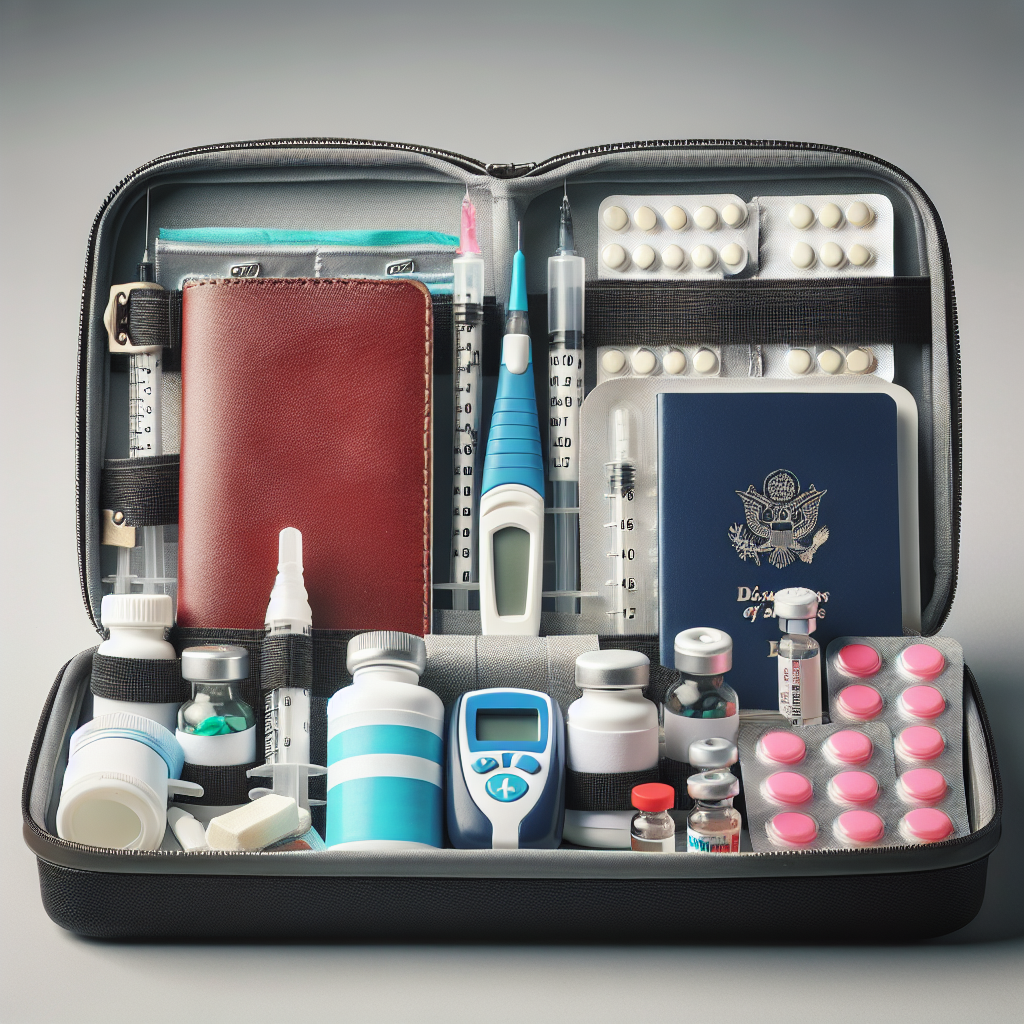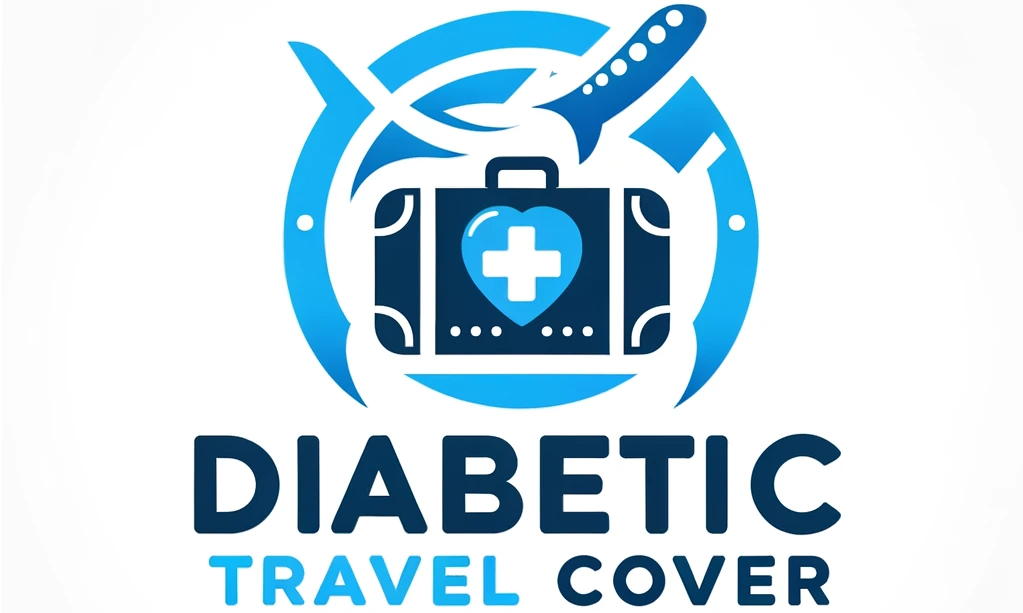When you have diabetes, planning for a trip involves more than just booking your accommodations and packing a suitcase. It also means taking the necessary precautions to ensure your safety and well-being, and this includes understanding the importance of travel vaccinations. In this article, we will explore the essential information you need to know about travel vaccinations and how they can affect individuals with diabetes. From recommended vaccines to potential risks, we’ll provide you with the knowledge to make informed decisions about your health while exploring the world. So, read on to discover everything you need to know about travel vaccinations and diabetes.

Understanding the Importance of Vaccinations for Diabetics
Why Immunization is Important for People with Diabetes
As an individual living with diabetes, it is crucial for you to understand the importance of vaccinations. Vaccinations play a significant role in protecting your health, especially since diabetes affects your immune system. When you have diabetes, your body’s ability to fight off infections may be compromised, making you more susceptible to certain diseases. By getting vaccinated, you can strengthen your immune system and reduce the risk of developing serious complications from preventable illnesses.
How Diabetes Affects the Immune System
Diabetes can have a direct impact on your immune system, making it harder for your body to fight off infections. High blood sugar levels can weaken your immune response, impairing the function of white blood cells that play a crucial role in the defense against harmful pathogens. Additionally, diabetes can lead to nerve damage and poor circulation, which may further hinder your body’s ability to fight infections. Therefore, it is vital for individuals with diabetes to take extra precautions and ensure their immune system is in its best possible state through immunizations.
Common Travel Vaccinations and Diabetes
Hepatitis A and B
Hepatitis A and B are viral infections that can cause serious liver damage. Individuals with diabetes are more prone to developing severe complications from these infections. Therefore, it is highly recommended for diabetics to receive the hepatitis A and B vaccines before embarking on any travel, especially to regions where these infections are prevalent.
Typhoid and Cholera
Typhoid and cholera are bacterial infections that primarily affect the digestive system and can be contracted through contaminated food or water. Diabetics should consider getting vaccinated against these diseases, particularly if they are traveling to areas with poor sanitation or limited access to clean water.
Yellow Fever
Yellow fever is a viral infection typically transmitted through mosquito bites. This disease is prevalent in certain regions of Africa and South America. It is essential for diabetics planning to travel to endemic areas to receive the yellow fever vaccine, as the infection can have severe consequences for individuals with compromised immune systems.
Meningitis
Meningitis is an infection that affects the membranes surrounding the brain and spinal cord. Diabetics, especially those traveling to crowded areas such as college campuses or pilgrimage sites, should consider getting the meningococcal vaccine to protect themselves from this potentially life-threatening disease.
Rabies
Rabies is a deadly viral infection transmitted through the bites of infected animals. Diabetics should exercise caution when traveling to regions with a high prevalence of rabies. It is advisable to receive the rabies vaccine and take necessary precautions to avoid close contact with animals, especially stray dogs and bats.
Pre-travel Health Check-ups
Routine Check-ups before Travel
Before embarking on your journey, it is essential to schedule a pre-travel check-up with your healthcare provider. During this check-up, your doctor will assess your overall health, review your medical history, and provide guidance specific to your diabetes management while traveling. They may also recommend any necessary vaccinations based on your intended destination.
Lab Tests and Medical Exams for Diabetic Travelers
Additionally, your healthcare provider might recommend specific lab tests and medical exams to ensure your diabetes is well-managed before your trip. These tests may include checking your blood sugar levels, assessing kidney function, and evaluating your overall cardiovascular health. It is crucial to follow your doctor’s recommendations and address any potential health concerns before leaving for your journey.
Traveling with Diabetes Medication and Supplies
Guidelines for Carrying Diabetes Medication and Supplies
When traveling with diabetes, it is essential to pack your medications and supplies properly. Here are some guidelines to ensure you have everything you need:
- Carry enough medication and supplies to last the duration of your trip, plus extra in case of unexpected delays.
- Store your medications in their original packaging, clearly labeled with your name and prescription details.
- Keep your medications in your carry-on luggage to ensure they are accessible at all times.
- If you are using insulin, make sure to pack enough syringes or insulin pens, as well as a sufficient supply of glucose monitoring supplies.
- It is advisable to carry a letter from your healthcare provider stating your medical condition, medications, and equipment you need for diabetes management.
Tips to Protect Diabetes Supplies while Traveling
To prevent damage or loss of your diabetes supplies while traveling:
- Pack your supplies in a waterproof and secure travel case.
- Keep your supplies in a cool and dry place to protect them from extreme temperatures.
- If you are flying, pack your supplies in your carry-on luggage to avoid potential damage from checked baggage.
- Inform airport security about your diabetes supplies at the security checkpoint and request a visual inspection instead of sending them through x-ray scanners, as these can damage insulin and glucose monitoring equipment.

Vaccine Interactions with Diabetes Medications
Possible Interactions between Vaccines and Diabetes Medications
It is essential to be aware of any potential interactions between vaccines and your diabetes medications. While most vaccines do not interfere with diabetes management, a few may have certain considerations:
-
Pneumococcal vaccines: Some individuals with diabetes may experience a temporary increase in blood sugar levels after receiving the pneumococcal vaccine. It is recommended to monitor your blood sugar levels closely and adjust your diabetes medications if necessary.
-
Influenza vaccine: The influenza vaccine is highly recommended for individuals with diabetes. However, if you are taking medications that suppress the immune system, such as corticosteroids, the vaccine’s effectiveness may be reduced. Consult with your healthcare provider regarding the timing and potential adjustments to your medications.
Safely Managing Diabetes Medication with Travel Vaccines
If you are planning to receive any travel vaccines before your trip, it is important to inform the healthcare provider administering the vaccines about your diabetes and the medications you are currently taking. They will be able to provide guidance on the appropriate timing of both vaccines and medications to minimize any potential interactions. Always follow your healthcare provider’s instructions and seek their advice if you have any concerns or questions.
Traveling across Different Time Zones
The Impact of Changing Time Zones on Diabetes Management
Traveling across different time zones can disrupt your diabetes management routine. Changes in meal times, sleep patterns, and medication schedules can all impact your blood sugar control. It is important to be prepared and make adjustments accordingly.
Adjusting Medication Schedules when Crossing Time Zones
Here are some tips to help you adjust your medication schedules when crossing time zones:
- Talk to your healthcare provider before your trip to determine the appropriate adjustments to your medication timings.
- If you are taking insulin, consider adjusting the timing and dosage based on the new time zone to maintain stable blood sugar levels.
- Be mindful of any potential interactions between your diabetes medications and any prescription medications for jet lag or sleep aids. Consult with your healthcare provider about the appropriate use of such medications.

Eating Well While Traveling with Diabetes
Managing Diet while Traveling
Maintaining a healthy diet is crucial for individuals with diabetes, even while traveling. Here’s how you can manage your diet while on the go:
-
Plan your meals in advance: Research local cuisines and food options at your travel destination. Look for healthier alternatives and plan your meals accordingly.
-
Portion control: Be mindful of portion sizes and avoid overeating. You can ask for smaller portions or share meals with travel companions to manage your carbohydrate intake.
-
Choose wisely: Opt for nutritious, low-carbohydrate options whenever possible. Include plenty of vegetables, lean proteins, and whole grains in your meals.
Tips for Eating Healthy during Travel
Here are some additional tips to help you maintain a healthy diet while traveling:
-
Carry healthy snacks: Pack portable, diabetes-friendly snacks such as nuts, fruits, and granola bars to have on hand when healthy options are limited.
-
Stay hydrated: Drink plenty of water and avoid sugary drinks. Carry a refillable water bottle with you to stay hydrated throughout the day.
-
Avoid excessive alcohol consumption: Alcohol can affect blood sugar levels. If you choose to consume alcohol, do so in moderation and with caution.
Dealing with Potential Side Effects of Vaccines
Understanding Side Effects of Travel Vaccines
Like any medical intervention, travel vaccines can have potential side effects. It is important to understand the possible side effects and know when to seek medical attention. Common side effects of travel vaccines may include:
- Soreness or redness at the injection site
- Mild fever
- Fatigue or muscle aches
- Nausea or headache
Managing Side Effects of Vaccines in Diabetics
If you experience any side effects from travel vaccines, it is crucial to manage them effectively, especially as someone with diabetes. Here are some tips to help alleviate potential side effects:
- Take over-the-counter pain relievers, such as acetaminophen or ibuprofen, if approved by your healthcare provider.
- Stay hydrated and get plenty of rest to support your immune system’s recovery.
- Monitor your blood sugar levels closely, as some side effects may temporarily affect your glucose control. Adjust your diabetes medications if necessary, under the guidance of your healthcare provider.

Emergency Preparation for Diabetic Travelers
Planning for Diabetes-related Emergencies during Travel
As a diabetic traveler, it is crucial to be well-prepared for potential emergencies. Here’s what you can do to ensure your safety:
-
Carry a diabetes emergency kit: Pack a kit that includes your diabetes medications, glucose testing supplies, a glucagon emergency kit, and any other necessary items specific to your diabetes management.
-
Carry identification: Wear a medical alert bracelet or carry a card that identifies you as a person with diabetes. This will help healthcare providers quickly understand your condition during an emergency.
Things to Include in a Diabetic Emergency Kit
In your diabetes emergency kit, include the following:
- Extra supply of diabetes medications, including insulin and oral medications.
- Glucose monitoring supplies, such as lancets and test strips.
- A glucagon emergency kit for severe hypoglycemia.
- Snacks or glucose tablets for treating low blood sugar episodes.
- Contact information for your healthcare provider and emergency contacts.
Travel Insurance for Diabetic Travelers
The Importance of a Good Travel Insurance Policy for Diabetics
Travel insurance is of utmost importance for diabetic travelers. It provides financial protection and peace of mind in case of unforeseen medical emergencies or trip cancellations. A good travel insurance policy for diabetics should include coverage for:
- Emergency medical expenses, including hospitalization and doctor visits.
- Emergency medical evacuation, especially if you are traveling to remote areas with limited healthcare facilities.
- Trip cancellation or interruption due to health-related reasons.
- Loss or theft of medications or diabetes supplies.
Things to Look for in Travel Insurance for Diabetic Travelers
When selecting a travel insurance policy, consider the following factors:
- Coverage for pre-existing conditions, including diabetes.
- Adequate coverage limits for medical expenses and emergency services.
- 24/7 emergency assistance helpline.
- Coverage for trip delays or cancellations due to diabetes-related complications.
- Details on coverage for lost or stolen medications, supplies, or baggage.
In conclusion, understanding the importance of vaccinations for diabetics is crucial for maintaining good health while traveling. By following the guidelines and seeking appropriate medical advice, you can ensure a safe and enjoyable journey. Remember to prioritize your health, carry necessary supplies, and invest in a comprehensive travel insurance policy. With proper preparation, you can embark on your travel adventures confidently, knowing that you have taken the necessary precautions to protect yourself as a diabetic traveler.


